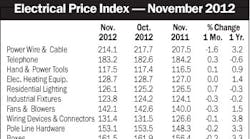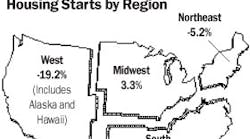Latest from Mag
Pointing the way to a “new industrial renaissance” based on the convergence of manufacturing and information technologies, Rockwell Automation said it has developed a new portfolio of smart, safe and sustainable manufacturing solutions that capitalize on smart grid initiatives to potentially help companies save up to $6 billion a year, or about 10 percent of total U.S. industrial electrical energy costs.
The portfolio includes a series of plant-wide energy optimization tools that create an integrated industrial energy management system based on Rockwell Automation industrial automation and information technology. It will allow manufacturers to perform real-time load-balancing of their industrial processes, bring renewable energy sources online and execute demand response strategies connected to the smart grid.
“The manufacturing sector is responsible for almost a third of U.S. energy consumption, primarily by driving loads with electric motors,” said Sujeet Chand, chief technology officer for Rockwell Automation. “While recent ‘Smart Grid’ demonstrations have focused on benefits to homes and commercial buildings, we look forward to working with manufacturers and electric power companies to save energy and reduce greenhouse gas emissions as industrial processes consume less electricity.”
With smart manufacturing solutions, an entire plant’s energy consumption can be optimized, Rockwell says. Information on real-time energy usage flows from machine to machine and across production lines, and intelligent machines can monitor and manage their own energy use. Plant-floor energy use data can then be networked into enterprise business systems and connected to suppliers and utility companies. This approach to industrial energy management starts where most electricity is used -- machinery and motor control. Using “inside-out” integrated energy management, Rockwell Automation can provide real-time energy “greenprint” monitoring by individual loads, machines and lines, to more effectively manage peak demand for the plant, predict the overall impact of production changes on energy use, and ultimately automate production for optimal energy consumption across the enterprise.

